#revolution française
Explore tagged Tumblr posts
Text
A first attempt fell into nothingness :
The very first musical Made in France
Which is neither a foreign adaptation nor an operetta from another time, was initially just a simple disc without great ambition .

The disc existed in two different copies :
The original double album from 1973 containing the vinyl and twelve pages of unpublished comics
and
The triple album black and gold from 1977 where the song of the assassination of Marat was completely rewritten .
Stars of French song of the time are nevertheless present on the album :
Alain Bashung as Robespierre , Antoine is Napoleon , and the Charlots (a group of comedian actors/singers) as priests
( Note the tiny participation of a still unknown Daniel Balavoine in the chorus . )

The story follow the impossible love story of Charles Gauthier, a poor boy from the people , for Isabelle de Montmorency, daughter of aristocrats during the great events of 1789 (This plot will be copied without any embarrassment by the musical comedy "1789 les Amants de la Bastille" many years later)
The Disc will be such a surprise success that a stage adaptation will be carried out, first at the Palais des sports with the presence of Alain Bashung still in his role of Robespierre then at the Mogador theater the following year with a new troupe and without the presence of the stars of the album .



Despite its success, the show was not filmed or archived.
All we have left are some fairly poor quality TV archives and the full audio of the original album :
youtube
youtube
The full album :
youtube
Today this show has completely fallen into oblivion, no attempt at a revival had been started, until this year !!
youtube
I invite you to follow the path to my main masterlist to learn more about French musicals and their stories :
#comedie musicale#french revolution#1789#old musical#musical theater#marie antoinette#la révolution française#revolution française#français#robespierre
0 notes
Text
Hi Frevblr. I've bought this gem full of original 1833's engravings about many frev themed events, by Frilley, Fontaine, Dutillois (and others not mentioned) .
I've tried to fix the resolution as best as I could. Enjoy ;3



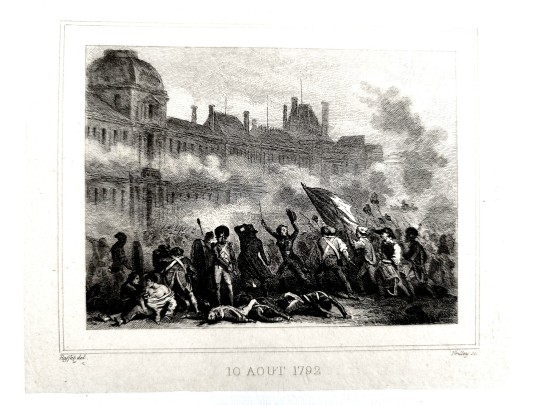






#frev#frevblr#engraving#french revolution#robespierre#danton#camille desmoulins#marat#la révolution française#history
80 notes
·
View notes
Text


la vertu sans laquelle la terreur est funeste;
an old sketch i decided to post because apparently people here want to look at robespierre
69 notes
·
View notes
Text
Camille Desmoulins and Maximilien Robespierre – doomed by the Revolution?
a second part of the answer to the ask kindly sent by @iron--and--blood - first part can be found here
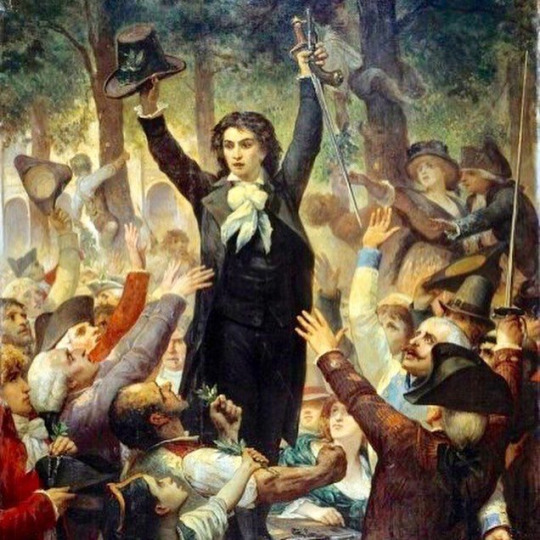
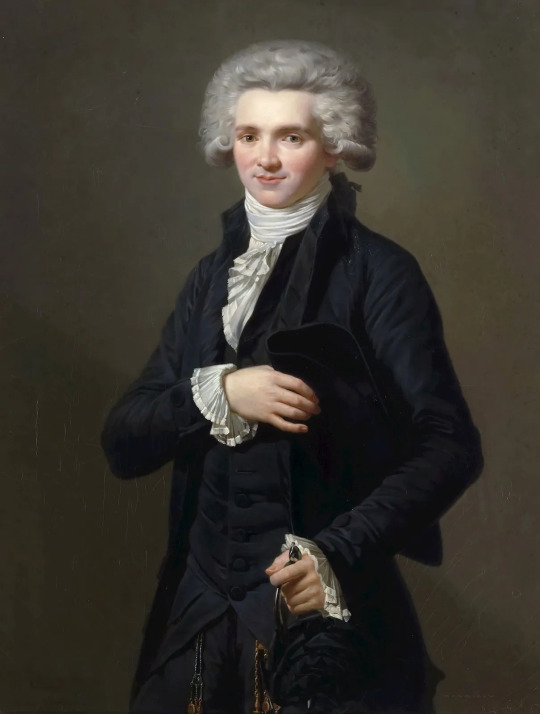
Okay, so I tried to follow the sources and I ended up missing what is arguably the key question. I think that there is enough evidence that warrants seeing Camille and Maximilien’s relationship as a ‘friendship torn apart but the revolution’, but could it in fact be something more that the chain of events of the mid-1790s ended up destroying?
(aka the good old “were they gay?” question)
It’s probably not surprising to anyone that there is no conclusive evidence that would suggest that either of them was definitely queer or that they were involved in some kind of a relationship. For context, the French Constitutional Assembly did decriminalise homosexuality, since there was simply no mention of private same-sex relationships it in the penal code of 1791.
Of course, there would still be a stigma surrounding queerness, seeing how France was a Catholic country – well, up to that point. On the other hand, it is also important to remember that anyone who received a higher education at that time would be well versed in classical authors (Greek and Roman that is), so they would have a framework for a positively viewed queer attraction/relationship (I'm mostly thinking of a kind of Alcibiades/Socrates vibes here. I think it sort of fits? Well it does in my headcanon anyway...). Camille especially seemed to be really into classics, making references to classical authors, history or mythology in approximately every other sentence.
CAMILLE – VICES HONTEUX AND A POSSIBILE BICON
If we consider Camille, I think it is clear that he was attracted to women. I think that the historical sources show that he genuinely did love his wife - Lucile - although it may also be true he was bit of a cad. There is a whole deal with him and Lucile’s mother with whom he apparently exchanged some flirty letters? I honestly need to look into it more at some point.
That said, attraction to women of course doesn’t exclude attraction to men. The one thing that would suggest Camille might have pursued a same-sex relationships is the reference to “vices honteux“ (shameful vices), which Saint-Just claims were attributed to Camille by Danton. We also learn from Robespierre’s note that this refered to something that was ‘totally unrelated to the revolution’.
So we know it’s something that would be seen as ‘shameful’ behaviour, but nonetheless a private matter. Could it be interest in same-sex relationships? It’s of course hard to say, but the theory is not completely implausible. For a discussion about this, I recommend this article.
MAXIMILIEN – A CONFIRMED BACHELOR?
With Maximilien Robespierre, it gets a little more complicated. He was essentially a confirmed bachelor, living with a family that adored him but that was not his own (and also a dog. He had a dog.) Talk about a found family trope!
Some sources claim that he was engaged to Éléonore Duplay, but Robespierre’s sister for one vehemently denies this. It’s true that he could probably easily have married her – I can’t imagine her family being opposed to it, far from it probably – but the fact is that for one reason or another, he did not.
He also didn’t really seem to capitalise on his massive popularity among the Parisian women. (Though, to be fair, neither did Rousseau and he was… well I guess he was his own version of heterosexual.)
Sure, one can interpret that as Robespierre being a workaholic or putting the revolution above everything else, but I personally think it is very possible that he would be considered to be on the asexual spectrum by today’s standards.
That said, although France was moving away from institutionalised religion at that point, Catholic guilt could certainly play a role, especially in someone who prided himself in his moral conduct and was told to be rigid about the rules. So the possibility of him being closeted as an explanation for his lack of interest in women would also not be completely off the table.
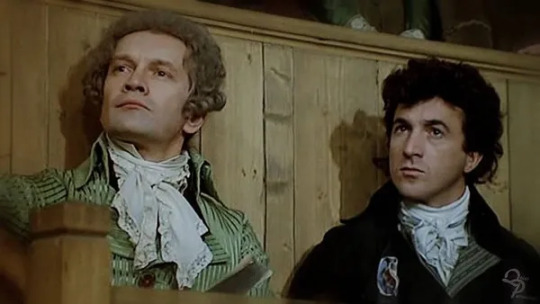
As to Camille and Maximilien being together in some way? I think there is certainly a precedence for this type of relationship in adolescence. Seeing that they have studied together (and shared enthusiasm for classics probably), it is not impossible, though of course, it is highly speculative.
I think it is also fair to say that Robespierre went above and beyond for Camille until the last few months. That is something he probably would have not done for many other people. He actually said as much himself:
“Learn, Camille, that if you were not Camille, one could not have so much indulgence for you.“
Was it because Camille was universally liked by the revolutionaries for all the good he has done? Possibly, but I think one can also read more into it. It certainly suggests that Camille was special in some way, and the fact that Robespierre uses ‚one‘ instead of ‚I‘ does not necessarily mean he is not speaking about himself here.
CAMILLE AND MAXIMILIEN IN THE MEDIA
When it comes to media portrayal, the relationship often comes across as queer-coded - to an extent.
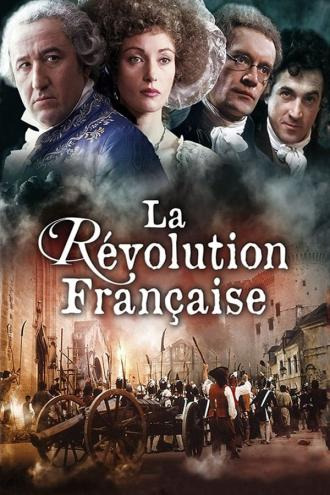
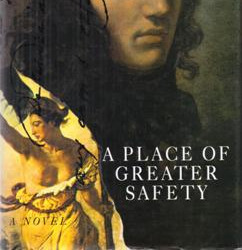
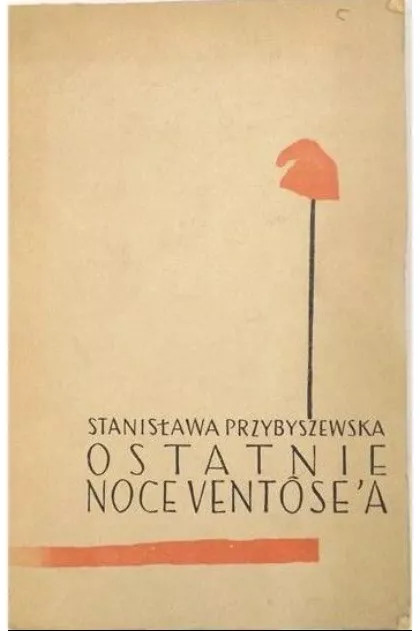
In La Révolution française, this aspect is more prominent between Robespierre and Saint-Just, but with some well-timed smiles and glances, it almost reads as a tragic love triangle between the three. There are some unfortunate implications however, mainly that the hints of Robespierre's queerness in the movie are implicitly associated with his descent to tyrany. Ugh. (And let's face it, a kind of effeminacy linked to villainy as well. Honestly, who thought that kind of portrayal would be a good idea? Kudos for making a historical movie about the French Revolution come across as homophobic I guess.)
Hilary Mantel straight-up makes Camille Desmoulins bisexual (ish?) in A Place of Greater Safety, though there are <a lot of> issues with that portrayal, as discussed here (watch me linking another mutual's great post! Frevblr is truly the best). Not sure how the relationship with Robespierre is presented here since it’s one of the books I’ve been in the middle of for months.
And then there’s Stanisława Przybyszewska of course. She would honestly warrant a separate post, but long story short: in her works, there is no doubt about the fact that she portrays the relationship between them as queer. She invokes the Erastes/eromenos dynamic between them (quite explicitly, referring to Camille as an ephebe at one point) and makes the attraction between the two seem palpable. There is plenty of queer (under)tones to be found in The Danton Case, but in Last Nights of Ventôse , she straight up interprets the fall of the Dantonists as Camille running into Danton’s arms to spite Robespierre for snubbing him and rejecting his devotion (romantic advances?). And it gets quite physical – not in a way that would warrant an E rating, but it would certainly deserve one for the sheer emotional intensity.
#there is a great fic that explores the idea of Robespierre being ace btw. Features some A+ philosophical discussions as well#the only issue is the fact that the other person in the pairing is --#no - shan't say!#frev#french revolution#asks#camille desmoulins#maximilien robespierre#queer history#frevblr#frev community#robesmoulins#1700s#history#stanisława przybyszewska#hilary mantel#a place of greater safety#the danton case#la révolution française#la revolution francaise#bisexuality#asexuality#Éléonore Duplay#robespierre#desmoulins#queer analysis#saint-just#louis antoine de saint just#lucile desmoulins#georges danton
95 notes
·
View notes
Text



Guillotine with figure.
#bizarre au havre#toy#guillotine model#guillotine#terror of french revolution#french revolution#horror#death#jouet#maquette#révolution française#la terreur#horreur#la mort#blood#sang
41 notes
·
View notes
Text
OSCANDRÈ❤️❤️❤️
⚠️THIS IS NOT MINE!⚠️ ->@paleosart

A fan art of Oscar François de Jarjayes and Andrè Grandier by @paleosart from the manga "Versailles no Bara" or "Lady Oscar- The Rose of Versailles" by Riyoko Ikeda
#year 24 group#oscarxandré#oscandré ship#oscandré#oscar x andré#lady oscar#andré grandier#andré x oscar#andréxoscar#andre grandier#riyoko ikeda manga#riyokoikeda#ikeda riyoko#riyoko ikeda#french revolution#révolution française#histoire française#history of france#historical manga#histoire#history#historical shojo#shojo manga#shojo#vintage shoujo#classical shoujo#shoujo anime#shoujo manga#shoujo#queen marie antoinette
32 notes
·
View notes
Text
“He [Napoleon] remained deeply attached to the refusal of the Ancien Régime, to the refusal of national degradation in the face of the Bourbons and aristocratic Europe. It is from this refusal that he will draw the strength to think and set up this powerful resistance movement which will be the return from the island of Elba in March 1815. This is why the forces of the Holy Alliance reject him, ostracizing him from humanity as an ‘anarchist’. He was in his time ‘the revolutionary emperor’ because his conquest was transformative for the social order.”
— Antoine Casanova, Vive la Révolution: 1789-1989: Réflexions autour du bicentenaire
#Antoine Casanova#Casanova#Vive la Révolution: 1789-1989: Réflexions autour du bicentenaire#Vive la Révolution#napoleon#napoleonic era#napoleonic#napoleon bonaparte#first french empire#french empire#history#france#french revolution#La Révolution française#Révolution française#19th century#the hundred days#hundred days#french history#revolution#Marxist history#Marxism
31 notes
·
View notes
Text
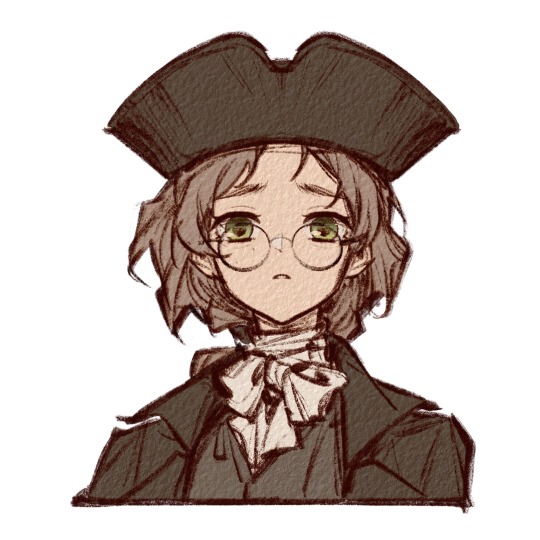
commission art w/ @naxim 😇😇🙏🏻(I'm not the author of this art! )
*petition on more young Robespierre content 🫡
老师画的幼罗特别特别萌呜呜呜呜呜
75 notes
·
View notes
Text

May 8 is the day of celebration of the Supreme Being!! Citizens, let's celebrate these days of joy with beautiful phrases, art and dedications to the Supreme Being!!!
Illustration by Maxime
#festival of supreme being#french revolution#art#frev#robespierre#maximilien robespierre#artist#frev art#artists on tumblr#révolution française#the french revolution#fête de l'Être suprême
33 notes
·
View notes
Text
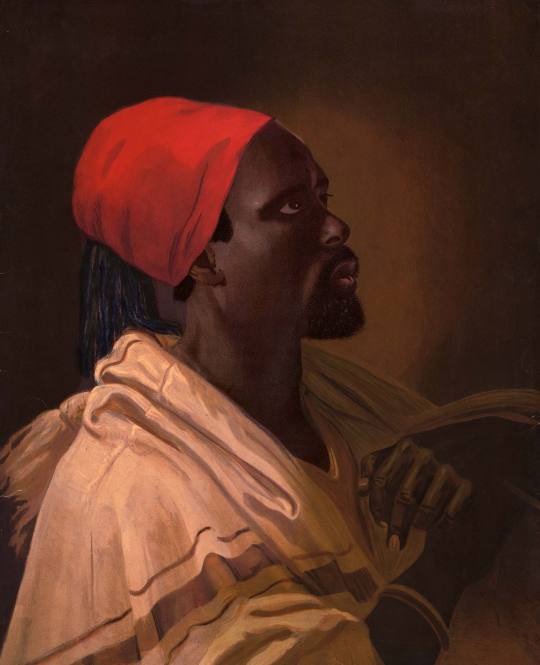
Toussaint L'Ouverture by George De Baptiste.
#George De Baptiste#haiti#République d'Haïti#Repiblik d'Ayiti#french revolution#jacobins#haitian revolution#Révolution haïtienne#Révolution française#black lives matter#Liberté ou La Mort
138 notes
·
View notes
Text
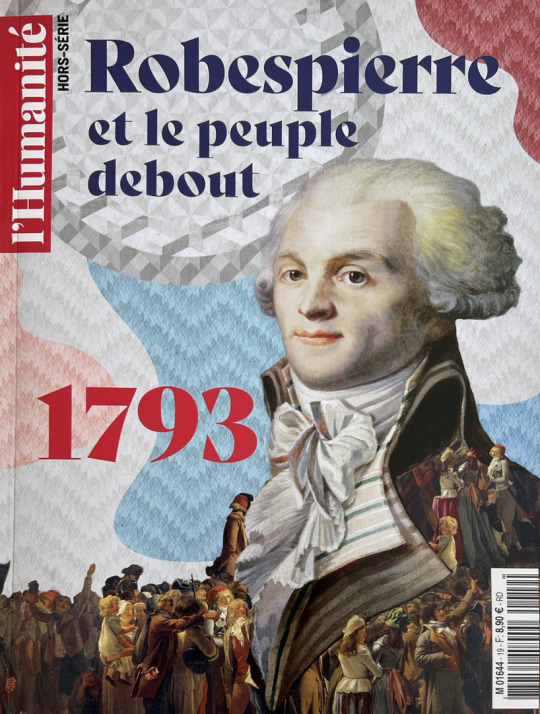
hewwo frevblr! its been awhile but today i bring yall a scan of the l'Humanité special edition, robespierre et le peuple debout, that came out this summer!
#tomorrow i bring myself an early morning panic attack as i attempt to finish the german hw im currently procrastinating before class <3#u cant open it without downloading cuz its too big but its not a virus i prommy 🥺#also if there are any issues accessing it or if any pages are blurry/missing/unclear pls let me know!!#frev#l'humanité#robespierre#marat#saint just#french revolution#la révolution française
85 notes
·
View notes
Text

Ah ! C'est l'archange Saint-Just...🤍🥀
#art#my art#frev#study sketch#frevblr#saint just#la révolution française#french revolution#robespierre#(he's there staring at st just with starry lovestruck eyes)#frev art
51 notes
·
View notes
Text
Gojira: Ah! Ça Ira.
#Francia#France#París#Europa#Europe#Jeux Olympiques 2024#Olympic Games 2024#Juegos Olímpicos 2024#Jeux Olympiques#Olympic Games#Juegos Olímpicos#Olympics#Olimpiadas#Gojira#ah! ça ira#Marie-Antoinette#María Antonieta#OpeningCeremony#Cérémonie d'ouverture#Ceremonia de Apertura#Revolución Francesa#French Revolution#Révolution française#Mundo#World#Monde#Ciudad#City#Ville
9 notes
·
View notes
Text

#frev#frev community#my art#frev art#robespierre#art tag#french revolution#maximilien robespierre#procreate#taleonne#révolution française
86 notes
·
View notes
Text

Décret ordonnant la levée de 300 000 hommes, 24 février 1793
"This special military levy was the forerunner of the famous “levy en masse.” It was the preliminary step in the development of a scheme of national conscription which was to be perfected in the later days of the Revolution and under Bonaparte, and which was to be adopted subsequently by all major European states as the basis of their military organization. For the most part the levy was successful, although it occasioned rebellious opposition on the part of many Catholic peasants."
***
' All French citizens from the age of eighteen to fully forty years, unmarried or widowers without children, are in a state of permanent requisition until the date of completion of the effective recruiting of the newly levied 300,000 men hereinafter decreed.
The Executive Council and the generals of the armies of the Republic may requisition the said citizens; the generals shall render account to the Executive Council, and the Executive Council to the Convention, of the number of those who have been requisitioned, and of the departments on which the various requisitions have been made.'
(John Hall Stewart. A Documentary Survey of the French Revolution. New York, Macmillian, 1951.)
#French Revolution#The French Revolution#La Révolution française#Frev#The National Convention#La Convention nationale#Bonaparte#Napoleon Bonaparte#(mentioned)#Back at it again with the boring history posting#Military History#History#French History
14 notes
·
View notes
Text
My beloved Oscar and Andrè❤️
Oscandré is my favourite manga ship❤️
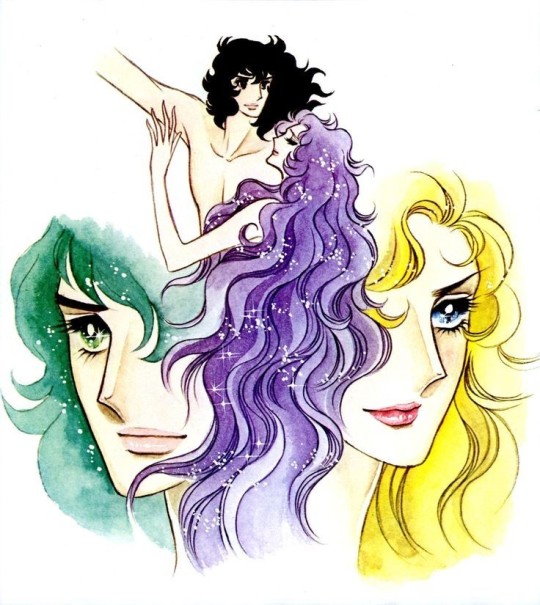
Oscar Françoise de Jarjayes and Andrè Grandier from the manga "Versailles no Bara" or "Lady Oscar- The Rose of Versailles" by Riyoko Ikeda
#oscar françois de jarjayes#lady oscar#ladyoscar#andré grandier#oscandré#oscandré ship#oscarxandré#andréxoscar#oscar x andré#andré x oscar#the rose of versailles#versailles no bara#rose of versailles#berubara#riyoko ikeda#ikeda riyoko#riyokoikeda#ikedariyoko#year 24 group#historical manga#french revolution#révolution française#18th century#queen marie antoinette#louis xvi#history#french history#histoire française
20 notes
·
View notes